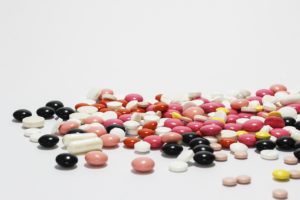Nose Issues [Show Notes]

Nose issues that cause your breathing to fail
- Congestion from allergies, viruses, or infections.
- Deviated septum – the septum (the bone that separates the nasal cavity and divides your nostrils) can get crooked and change the size and access of the nostrils or nasal cavity. Can be from trauma, or may gradually get crooked from chronic pressure.
- Turbinate Hypertrophy – over-growth of tissue covering the turbinates (tissue-covered bones that add warmth and moisture to the air you breathe). This can lead to snoring. May be treated by steroid nasal sprays or surgery to remove extra tissue.
- Nasal Polyps – uneven overgrowth of mucus membranes (symptoms may be runny nose, post-nasal drip, stuffiness). They are not cancerous. Treated by snipping them out.
- Sinus cancer – a single growing tumor that causes bulging, either around the eye, face, or mouth.
Nose issues that cause your smelling to fail
- Age
- Deviated septum (see above)
- Polyps (see above)
- Chronic sinus infections – the smelling sensors are inflamed or covered with mucus so much that they become damaged or less sensitive.
- Smoking – smoke and toxins can damage smelling receptors in your nose. Also, the receptors become so clogged up with smoke and tobacco molecules that there’s no room for other molecules to be detected. This can be temporary or permanent.
Nosebleeds
- In kids, this is usually from trauma (either bumps and bonks or picking). Can also be caused by dry air in the wintertime (use vaseline in the nostrils).
- In adults, can be from hypertension (high blood pressure) or chronic use of blood thinners.
PSA: Treatment for a nosebleed: DO NOT tip your head backwards!!!!! It makes you swallow that blood! THAT’S GROSS!! Proper treatment: pinch the nose and tip the head forward. This allows a clot to form and clots stop the bleeding.
Connect with me
Support us on Patreon
*NEW* Join the Pharmacist Answers Podcast Community on Facebook
Subscribe: iTunes, Stitcher, GooglePlay, TuneIn Radio
Music Credits: “Radio Martini” Kevin MacLeod (incompetech.com) Licensed under Creative Commons: By Attribution 3.0 http://creativecommons.org/licenses/by/3.0/



